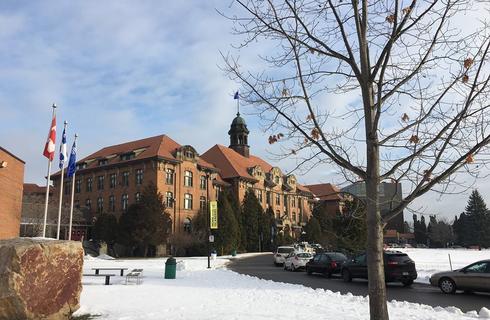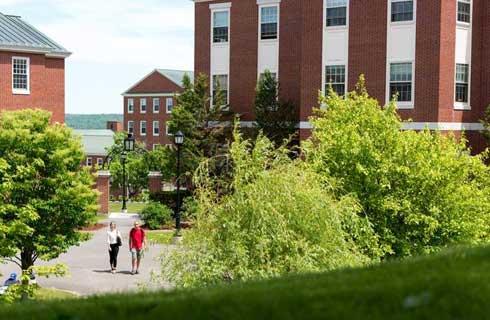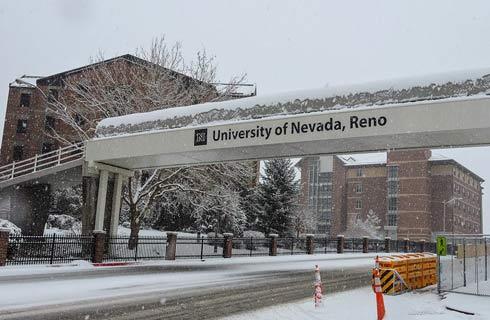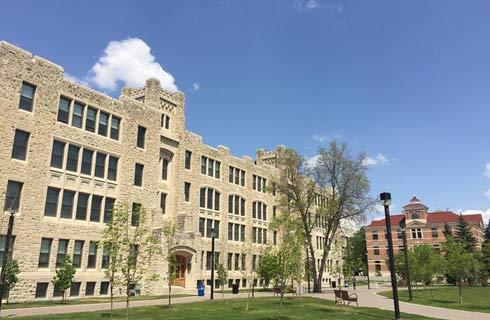生物科学硕士-课程设置-海洋生物学
Master of Biological Science - Marine Biology

学历文凭
Masters Degree (Coursework)

专业院系

开学时间

课程时长

课程学费

国际学生入学条件
(a) a Bachelor of Science, or an equivalent qualification, as recognised by UWA,
and
(b) the equivalent of a UWA weighted average mark of at least 50 per cent,
and
(c) met the prerequisite for the chosen specialisation
(2) For the Conservation Biology and Ecology specialisations an applicant must have successfully completed prior studies at a tertiary level in biology (excluding human biology), or in a related cognate discipline, as recognised by UWA
(3) For the Marine Biology specialisations an applicant must have successfully completed prior studies at a tertiary level in either marine science or biology (excluding human biology), or in a related cognate discipline, as recognised by UWA
(4) For the Zoology specialisation an applicant must have successfully completed prior studies at a tertiary level in animal science, or in a related cognate discipline, as recognised by UWA
IELTS (Academic) including IELTS for UKVI (Academic)- Minimum overall score of 6.5 with no band less than 6.0 (must include Academic Reading and Writing modules)
TOEFL - Essay Rating / Test of Written English (TWE) of 4.5 and either 230 (Computer-based) or 570 (Paper-based) score. Internet-based Test (iBT): An overall score of 82 with a minimum score of: 22 in the Writing section, 18 in the Reading section, 20 in the Speaking section, and 20 in the Listening section for all courses
IDP—雅思考试联合主办方

雅思考试总分
6.5
- 雅思总分:6.5
- 托福网考总分:82
- 托福笔试总分:570
- 其他语言考试:PTE (Academic)- An overall score of 64 with a minimum score of 59 in the speaking and writing sections, and no less than 54 in the listening and reading sections.
CRICOS代码: 074948B
申请截止日期: 请与IDP联系 以获取详细信息。
课程简介
The Master of Biological Science will give you an understanding of the molecular evolution, structure, physiology, reproduction, behaviour and ecology of organisms, and the skills to apply this knowledge to the management of natural systems and the species they support.<br><br>Western Australia (WA) is a marine and terrestrial biodiversity hot-spot. Up to 80 per cent of the region's plants, marine fish and invertebrates are unique to the area. This makes WA the ideal living laboratory for studies in biological science. You'll gain an understanding of the molecular evolution, structure, physiology, reproduction, behaviour and ecology of organisms, and the skills to apply this knowledge to the management of natural systems and the species they support.<br><br>When you graduate from the Master of Biological Science you will have the ability to integrate advanced knowledge of species biology and ecology to assess their vulnerability to environmental change, as well as have the ability to design, execute, analyse and report on field and/or laboratory projects.<br><br>You'll possess communication and technical research skills to justify and interpret methodologies, conclusions and professional decisions to specialist and non-specialist audiences. You'll become a broad thinker who can critically assess advanced research in your discipline and integrate this into practical solutions for preserving biodiversity. You'll contribute to group and/or individual research projects, as well as work independently to plan and execute a substantial research project and/or piece of scholarship.
相关申请
 预科
预科 奖学金
奖学金 实习机会
实习机会 在校学习
在校学习 跨境学习
跨境学习 校园授课-线上开始
校园授课-线上开始 在线/远程学习
在线/远程学习
开学时间&学费
学费信息仅供参考,请与IDP联系以获取详细信息
| 开学时间 | 时长 | 学费 | 地点 |
|---|
学校排名

世界排名134
数据源:
泰晤士高等教育世界大学排名
关于西澳大学

自110多年前成立以来,西澳大学(UWA)一直致力于激发变革,帮助塑造具有无限潜力的下一代领导者。作为西澳大利亚州第一所顶尖大学,西澳大学将激情、活力和洞察力融入教学、学习和研究中,取得了改变生活的成果。通过合作、研究、创新课程和对学生体验的承诺,西澳大学已跻身世界百强大学行列(2025年QS世界大学排名)。西澳大学的声誉由学者、研究人员、学生和大学合作伙伴共同铸就,他们携手解决世界上最严峻的挑战。 如今,来自100多个国家的28000多名学生以西澳大学为家。学生们加入了一个由充满激情、睿智和足智多谋的学者组成的社区,共同推动创新和变革。他们与教育、科研和产业界的领军人物联系和合作,追随着15万多名鼓舞人心的毕业生的脚步。西澳大利亚州首府珀斯拥有繁荣的经济、充满活力的文化氛围和令人叹为观止的自然美景,为生活、工作和学习提供了一个温馨的环境。在国际留学目的地中,珀斯有着得天独厚的优势,是商务、研究和全球企业的便捷门户。这座多元文化中心在全球最宜居城市中排名第 15 位(2024 年版《经济学人》 ),对于国际学生而言,珀斯比悉尼和墨尔本更加经济实惠(《经济学人》信息部《2023 年全球生活成本报告》)。
本校相关课程

卫生专业教育硕士-研究重点
学历文凭
Masters Degree (Coursework)
开学日期
课程费用总额


城市和区域规划硕士-课程
学历文凭
Masters Degree (Coursework)
开学日期
课程费用总额


法医学硕士
学历文凭
Masters Degree (Research)
开学日期
课程费用总额


国际关系研究生文凭
学历文凭
Graduate Diploma
开学日期
课程费用总额


社会工作硕士
学历文凭
Masters Degree (Coursework)
开学日期
课程费用总额


国际关系研究生证书
学历文凭
Graduate Certificate
开学日期
课程费用总额

其他相关课程

生物医学学士
 皇家墨尔本理工大学
皇家墨尔本理工大学学历文凭
Bachelor Degree
开学日期
课程费用总额


哲学硕士-生物医学和生物化学
 澳大利亚国立大学
澳大利亚国立大学学历文凭
Masters Degree (Research)
开学日期
课程费用总额


生物医学学士
 詹姆斯·库克大学
詹姆斯·库克大学泰晤士高等教育世界大学排名:361
学历文凭
Bachelor Degree
开学日期
课程费用总额


理学学士(海洋生物学)
 弗林德斯大学
弗林德斯大学泰晤士高等教育世界大学排名:307
学历文凭
Bachelor Degree
开学日期
课程费用总额


理学学士-海洋生物学(荣誉学位)
 弗林德斯大学
弗林德斯大学泰晤士高等教育世界大学排名:307
学历文凭
Bachelor Degree with Honours
开学日期
课程费用总额


城市与环境规划学士/海洋生物学理学学士
 格里菲斯大学
格里菲斯大学泰晤士高等教育世界大学排名:258
学历文凭
Dual Degree
开学日期
02 March 2026
课程费用总额
AUD 167,500










